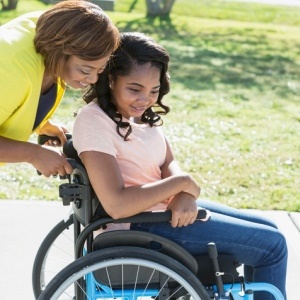
The stigma attached to disabled people in rural communities is proving to be a real problem for caregivers in Limpopo who are being hampered in their efforts to help and educate.
Florah Malatjie, the project manager at Tswaranang Disability Project Centre at Lephapane Village outside Tzaneen, said beliefs linking witchcraft to disabled people is particularly troublesome.
Parents and children need education
Tswaranang Disability Project Centre was originally established in 2000 as a protective workshop for elderly people, but currently takes care of 45 children living with disabilities. One of its main aims is to educate communities and the parents of disabled children to accept their condition.
Malatjie stressed that one of the major challenges that blocks people from seeking help is disability stigmatisation.
“The stigma attached to disability is the biggest concern we have when we visit parents about their disabled children. There are those who still believe that if you are disabled you are cursed and bewitched. And so we see parents trying to hide their disabled children,” said Malatjie.
“We also encounter a situation where parents fear that the child will not be well taken care of at our centre, but those are minor concerns because we can convince those parents. We welcomed such a child whose mother was refusing our help. When he came here he couldn’t feed himself nor run, but now he do both without assistance.
“The question is, what are these children learning when they are hidden inside the house? And worse, who is going to take care of them if their parents die? We teach these children to take care of themselves, to accept their disability and lead a happy life,” explained Malatjie.
Understanding and accepting disabilities
According to the Project’s care-giver, Maria Mangena, parents should be incorporated into the rehabilitation of their children and shown how to accept and understand their children better.
“In the meantime we will establish a support group with programmes once a month where parents meet and share their children’s various disabilities, and the challenges they come across raising their kids with each other. That will also help them to understand and accept their children’s disabilities. We will be inviting various people such as psychologists and social workers to address them,” said Mangena.
According to Malatjie, the centre survives on grants from the Department of Social Development, but the money is not enough for all their needs.
“We need classrooms, wheelchairs and various sporting code equipment – things we are not allowed to use grant money to buy,” she said. – Health-e News.
Image credit: iStock




 Publications
Publications
 Partners
Partners










